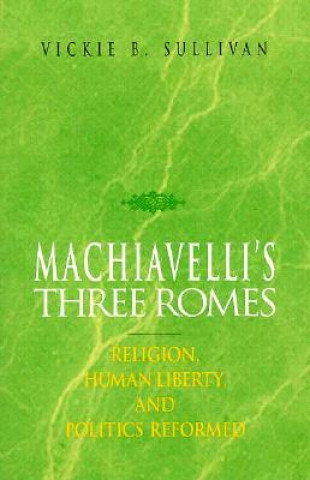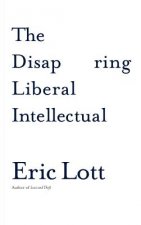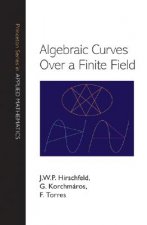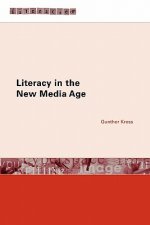
Doručenie
Nákupný poradca





Nehodí sa? Žiadny problém! U nás môžete do 30 dní vrátiť
 Darčekový poukaz
v ľubovoľnej hodnote
Darčekový poukaz
v ľubovoľnej hodnote
S darčekovým poukazom nešliapnete vedľa. Obdarovaný si za darčekový poukaz môže vybrať čokoľvek z našej ponuky.
Machiavelli's Three Romes
 Angličtina
Angličtina
 109 b
109 b
30 dní na vrátenie tovaru
Mohlo by vás tiež zaujímať


Machiavelli's ambiguous treatment of religion has fuelled a contentious and long-standing debate among scholars. Whereas some insist that Machiavelli is a Christian, others maintain he is a pagan. Sullivan mediates between these divergent views by arguing that he is neither but that he utilizes elements of both understandings arrayed in a wholly new way. She develops her argument by distinguishing among the three Romes that can be understood as existing in Machiavelli's political thought: the first is the Rome of the Christian era, dominated by the pope; the second is the republican Rome of pagan times, which Machiavelli praises; and the third is an idealized Rome that is neither entirely pagan nor entirely Christian. In part 1, Sullivan examines Machiavelli's treatment of Christian Rome to find that in his view the Church and the beliefs of Christianity have fostered grave political problems. Indeed, he contends that Christianity exercises a type of tyrannical rule over human beings. His recognition motivates his seemingly enthusiastic turn to the pagan Rome of the "Discourses". Examining his treatment of pagan Rome in part 2, Sullivan finds that Machiavelli is critical of this apparent alternative to Christian Rome. In particular, Machiavelli demonstrates that republican Rome proved inept at handling its ambitious men who vied for power. Sullivan also shows how Machiavelli infuses his discussions of republican Rome with terms evocative of Christianity in a way that suggests Christian governance ultimately derived from pagan Rome. The ancient city is an insufficient model for the people of his times, and thus he proposes an idealized Rome that will transcend the problems both of Christian and of pagan Rome. The character of Machiavelli's new Rome provides the focus of Part 3. Sullivan argues here that Machiavelli's new Rome will embody certain elements of the two other Romes yet will overcome the failings of each. She shows Machiavelli's thought to be a highly original response to what he understood to be the crisis of his times. Sullivan draws primarily from the "Florentine Histories", "The Prince" and the "Discourses" to offer a unique study of Machiavelli's political thought. Her examination of Machiavelli's three Romes will interest scholars of political science and political philosophy.
Informácie o knihe
 Angličtina
Angličtina
Kategórie




 Ako nakupovať
Ako nakupovať






























